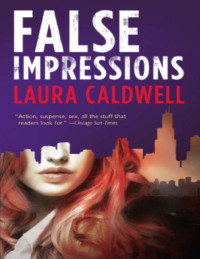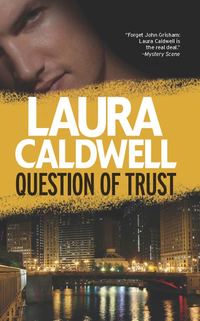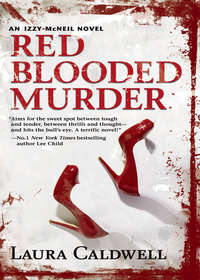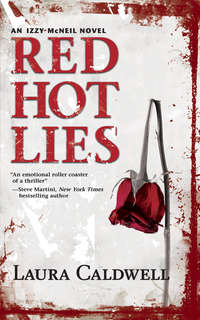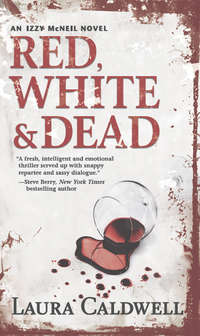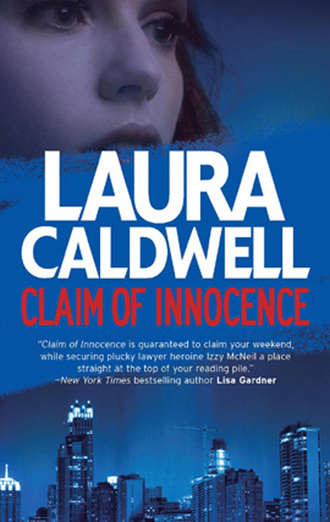
Полная версия
Claim of Innocence
“What does your client say?”
“Not much. Just that she didn’t do it.”
“What do you mean not much? How are we going to mount a defense if she won’t say much?”
“We handle this case the same as any other,” Maggie said. “First, we ask the client what happened. Then the client chooses what to tell us. Usually we don’t even ask the ultimate question about guilt or innocence because we don’t need to know. Our defense is almost always that the state didn’t meet their burden of proof.”
“So you never asked her if she did it or not?”
“She says she didn’t. Told us that first thing.”
“If she didn’t, who did?”
“She hasn’t given us a theory.”
Just then, a sheriff stepped into the courtroom. “All rise!”
The judge—a beefy, gray-haired guy in his early fifties—zipped up his robe over a white shirt and light blue tie as he stepped up to the bench.
“The Circuit Court of Cook County is now in session,” the sheriff bellowed, “the Honorable—”
The judge held his hand out to the sheriff and shook his head dismissively. The sheriff looked wounded but clapped his mouth shut.
“Judge Bates,” Maggie whispered. “He hates pomp and circumstance. New sheriff.”
I nodded and turned toward the judge, hands behind my back.
“Counsel, where are we?” the judge said.
Maggie stepped toward the bench and introduced me as another lawyer who would be filing an appearance on behalf of Valerie Solara. That drew a grouchy look from the judge.
“Hold on,” he said. “Let’s get this on the record.” He directed the sheriff to call the court reporter. A few seconds later, she scurried into the room with her machine, and Maggie went through the whole introduction again on the record.
“Fine,” the judge said when she was done, “now you’ve got three lawyers. More than enough to voie dire our jury panels.” The judge looked at the sheriff. “Call ’em in.”
“Excuse me, Judge,” Maggie said, taking a step toward the bench. “If we could have just five more minutes, we’ll be ready.”
Judge Bates sat back in his chair, regarding Maggie with a frown. He looked at the state’s attorneys for their response.
Ellie Whelan stepped forward. “Judge, this has taken too long already. The state is prepared, and we’d like to pick the jury immediately.”
The judge frowned again. I could tell he wanted to deny Maggie’s request, but Martin Bristol carried a lot of weight in Chicago courtrooms, even if he wasn’t present at the moment. “Five minutes,” the judge barked. He looked pointedly at Maggie. “And that’s it.” When the judge had left the bench, Maggie nodded at the door of the order room. “C’mon. Let’s go see how Marty’s doing. It will help that you’re going to try this case. You’re one of his favorites.”
We walked to the door, and Maggie swung it open. Martin Bristol sat at a table, a blank notepad in front of him. He was hunched over in a way I’d never seen before, his skin grayish. When he saw us, he straightened and blinked fast, as if trying to wake himself up.
“Izzy,” he said with a smile that showed still-white teeth. “What are you doing here?”
“Izzy’s looking for work, so I’m going to toss her some scraps.” Maggie shot me a glance. She wanted it to seem as if she was hiring me as a favor, not as a way to save her grandfather.
“I’d really appreciate it,” I said.
“Of course,” Martin said. “Anything for you, Izzy.” His posture slumped again, the weight of his shoulders appearing too much to hold.
“Mr. Bristol, are you all right?”
Maggie took a seat on one side of him. After a moment, I sat on the other side, a respectful distance away.
A moment later, when he’d still said nothing, Maggie put her hand on his arm. “Marty?”
Again, he didn’t respond, just stared at the empty legal pad, his mouth curling into a shell of sadness.
There was a rap on the door and the sheriff stuck his face into the room. “He’s had it,” he said, referring to the judge. “We’re bringing in the prospective jurors now.”
Maggie’s eyes were still on her grandfather. “Izzy and I can handle the voie dire. We may not open until tomorrow, so why don’t you go home?”
He sat up a little. “What have I always told you about jury selection?”
“That it’s the most important part of the trial,” Maggie said, as if by rote.
“Exactly.” He straightened more but didn’t stand.
“I think you should go home. Get some rest.”
His gaze moved to Maggie’s. I thought he would immediately reject the notion, but he only said simply, “Maybe.”
“Let us handle it.” Maggie nodded toward the courtroom. “I’ve already told the judge that Izzy was filing an appearance.”
Again, I waited for swift rejection, but Martin Bristol nodded. “Just this one time.”
“Just this once,” Maggie said softly.
Martin pushed down on the table with his hands, shoving himself to his feet. “I’ll explain to Judge Bates.” He slowly left the room.
Maggie’s round eyes, fringed with long brown lashes, watched him. Then she met my gaze across the table. “You ready for this?”
My pulse quickened. “No.”
“Good,” she said, standing. “Let’s get out there.”
5
“H ow’s Theo?” Maggie asked as the sheriff led a panel of about fourteen potential jurors through the Plexiglas doors and into the courtroom. Theo was the twenty-two-year-old guy I’d been dating since spring.
“Um…” I said, eyeing the potential jurors. “He’s fine. So what’s your strategy here? Did you do a mock trial for this? Do you know what kind of juror you want?”
As was typical, the possible jurors being led in were a completely mixed bag—people of every color and age. I remembered a story my friend, Grady, once told me about defending a doctor who had been sued. As they were about to start opening arguments, the doctor had looked at the jury and then looked at Grady. “Well, that’s exactly a jury of my peers,” the doc had said sarcastically.
When Grady told me the story, we both thought the doctor arrogant, but we understood what he meant. Chicago was a metropolis that was home to every type of person imaginable. As a result, you never knew what you were going to get when you picked a jury in Cook County. “Unpredictable” was the only way to describe a jury in this city.
“We talked to a jury consultant,” Maggie said, answering my question, “but tell me, what’s going on with Theo?”
I turned to her. “Why are you asking this now?”
“My grandfather always taught me to have two seconds of normal chitchat right before a trial starts.”
“Why?”
“Because for the rest of the trial you become incapable of it and because it calms you down.” She peered into my eyes. “And I think you could use some of that.”
“Why? I’m fine.” But I could feel my pulse continue its fast pace.
She peered even more closely. “You’re not going to have one of those sweat attacks, are you?”
I glared at her. But she had a right to ask. I had this very occasional but acute nervousness problem that caused me to, essentially, sweat my ass off. It usually happened at the start of a trial, and it was mortifying. I’d always said it was as if the devil had taken a coal straight from the furnace of hell and plopped it onto my belly.
I paused a moment and searched my body for any internal boiling. “No, I think I’m fine.”
The sheriff barked orders at the jurors about where to sit.
“If it’s a tradition,” I said, “the chitchat thing, then we should do it.”
Maggie nodded.
“So Theo is good,” I said. I got a flash of him—young, tall, muscled Theo, with tattoos on his arms—a gold-and-black serpent on one, twisting ribbons of red on the other. I could see his light brown hair that he wore to his chin now, his gorgeous, gorgeous, gorgeous face, those lips…
I shook my head to halt my thinking. If I didn’t stop, my internal heat would definitely rise. “Actually, I have more to talk about in terms of Sam.”
“Really? I thought you hadn’t seen him much.”
“I haven’t. He called this morning.”
“Hmm,” Maggie said noncommittally, her hands tidying stacks of documents. “How is he?”
“Engaged.”
Maggie’s chin darted forward, the muscles in her neck standing out. Her eyes went wide and shot from one of mine to the other and back again, looking for signs, I supposed, of impending sobbing. Finding none—I think I was still too shocked—she asked, “Alyssa?”
I nodded.
“Oh, my gosh. I’m so sorry, Iz.”
Maggie’s gaze was worried. She knew the ins and outs of Sam and me from start to finish. After Sam and I broke up, she was one of the few friends who understood that I still adored him, even as I felt I couldn’t continue our relationship. Eventually, I put that relationship away, in my past, likely never to be seen in my future. But here it was in my present.
“Where are they getting married?” Maggie asked. “And when?”
“Well, that’s the thing. He says he won’t set a date. Not if I don’t want there to be a date.”
And then I saw something remarkable, something I’d seen only once or twice before—Maggie Bristol, who was never at a loss for words, stared at me, her mouth open. Not a sound emanated from within. Not even when the judge shouted at her.
“Counsel,” the judge called to Maggie again, this time very loud. “Is. Your. Client. Here?” he said, enunciating.
Maggie finally dropped her eyes from me, picked up a cell phone and glanced at it. “Yes, Your Honor. One moment please.” Maggie gestured at me to walk with her.
“Where is your client?” I whispered.
“Our client,” Maggie whispered back. “She gets emotional when she’s in the courtroom so we try to keep her out until it’s absolutely necessary. I have someone from our office sit with her in an empty courtroom, then I text them to get her down here.” She put her hand on my arm. “We’ll have to table this discussion of Sam.”
“Of course. Forget I said anything.”
She scoffed as she led us past the gallery pews, all filled with more prospective jurors. I knew what she meant—it was hard for me to think of anything but Sam. Sam’s voice. Sam, saying he still wanted to be with me after everything.
I forced myself to focus instead on all those people in the pews, watching us like actors on a stage. And in a way litigation was a performance. I knew exactly what production Maggie wanted us to act in right now. She wanted us to make a show of solidarity—the two women lawyers about to greet their female client.
I threw my shoulders back, banned Sam Hollings from my mind again and smiled pleasantly at a few of the potential jurors as I followed Maggie to the courtroom door. I spied a couple of reporters scribbling in notepads. “I’m surprised there isn’t more media,” I whispered to Maggie.
“We’ve been trying to keep it low-key. We haven’t made a statement to the press, and Valerie hasn’t, either.”
As we stepped into the hallway, Maggie was stopped by a man with bright eyes who must have been at least eighty. I recognized him as a famous judge who had stepped down over a decade ago but was always being profiled in the bar magazines as someone who spent his retirement watching over the criminal courthouse where he had presided for so long.
“Hey, Judge!” Maggie said casually, shaking his hand and patting him on the arm. “How’s the golf game?”
“Terrible this summer!”
“It’s always been terrible, sir.”
The judge laughed. Maggie was like this at work—irreverent in a respectful kind of way. But she had an immediacy to her and a clear-cut way of speaking to people like judges, other attorneys and politicos, as if she had been intimately involved on their level for decades.
The judge moved on. A few steps later, I saw Maggie’s receptionist, whom I knew from my frequent visits to Martin Bristol & Associates. “Hi,” I said to her, but stopped short in my greeting when I saw the woman next to her.
Valerie Solara was a beautiful woman. She had golden-brown skin and eyes that were so dark they were almost black. Her gleaming ebony hair was pulled away from her face, showing her high cheekbones, her elegantly curved jaw. She wore a brown dress with tiny, ivory polka dots and a wide leather belt. But it wasn’t so much her beauty that struck me. It was the feel of her—some kind of powerful emotion that hung around her like a cloak.
And suddenly I knew what that emotion was. I’d felt it for a large part of my last year, after my fiancé disappeared, after my friend died, after I was followed, after I was a suspect in a murder investigation. The emotion was fear.
6
B ack in the courtroom, Maggie explained to Valerie that I would be helping on the case. Valerie looked confused, but nodded. Maggie then took the middle of the three chairs at our table so she could speak to both Valerie and me during jury questioning.
The state had the right to question potential jurors first. Tania Castle flipped her long brown hair over her shoulder as she looked at the jury questionnaires. She began calling on potential jurors, asking them whether they or their family members had been victims of a violent crime, whether they were members of law enforcement, whether they could be fair. When she was done, she consulted with Ellie, the other state’s attorney, and they booted two of the jurors, who were replaced by two others from the gallery.
Maggie held out our copies of the questionnaires. “You’re up,” she said.
“You’re letting me go first?”
She nodded, then leaned in and whispered instructions to me.
When she was done, I took the questionnaires from her hand. “Got it.”
I glanced at Valerie, whose face seemed to war between calm and dread. I gave her my best it will be fine expression.
Wishing desperately for that expression to be true, I strode toward the jury box, exuding what I hoped was a composed, authoritative air, even though my skin felt tingly, as if my nerves were scratching against it.
We wanted to present Valerie Solara, Maggie had said, as a mom, a Chicagoan and a friend. Valerie had lost her husband some years back and in order to be able to afford her daughter’s private school, they’d moved from their upscale Gold Coast neighborhood to the west side of the city, into a cheaper apartment. We wanted jurors who were devoted parents, or jurors who lived either north or west as Valerie had, or even widowers. Basically, we wanted people who seemed as much like our client as possible.
I looked at one potential juror and smiled. “Ms. Marshall. You mentioned on earlier questioning that your husband is a police officer, is that right?”
She nodded. She was a heavy woman with faded blond hair and splotched skin. She looked annoyed about having to be here, but her previous answers had shown she had some interest in being on the jury. She was also obviously in support of anything law enforcement; one of those people who believed the police could do no wrong.
I want her out, Maggie had said fiercely. In Illinois, an attorney can ask that a potential juror be dismissed for “cause”—meaning a situation where it was evident that a potential juror could not be impartial—as many times as they wanted. But what if it wasn’t evident that person was unfair? What if the lawyer just had a feeling? Then you had to use a “challenge.” But each side only got a certain number of challenges. My role was to try and get the juror to say something that would rise to the level of “cause.”
“Given your husband’s job,” I said, “do you believe you would be able to stay fair and impartial throughout the trial?”
“Of course,” she said, clearly annoyed. Exactly what I wanted.
“It could be days, even weeks, until Valerie Solara will be able to present her own evidence. Will you be able to wait until you hear all the evidence before you decide whether the state has proven their case beyond a reasonable doubt?”
“Yeah.” She crossed her arms and glared. She struck me as someone who wanted to be on the jury for the sake of being able to say so to her friends.
“Do you have children, Ms. Marshall?”
She shook her head.
“You’ll have to answer out loud for the court reporter, ma’am.”
“No,” she said loudly.
“Have you ever seen your husband testify in any cases?”
Now her face lightened. “Yes.”
“And have you ever encountered a situation where your husband testified in a case where the defendant was not guilty of the crime of which they were accused?”
“Oh, no,” she said immediately. “He wouldn’t.”
“Why is that?”
“Because he’s a policeman.”
“And police officers know who is guilty.”
“Right.”
“Is there a situation you could imagine where a police officer might testify and that person might end up being innocent?”
“No.”
I had her. I didn’t want to look triumphant in front of the whole jury, so I asked a few more questions, all benign, before I turned to Judge Bates. “Your Honor, I’d request that Ms. Marshall be excused from the jury for cause.”
He nodded. “So granted.”
Judge Bates looked at the jury. “Ms. Marshall, we thank you for being here today. You may leave.” He nodded at the sheriff to show her the way out. “Continue, Ms. McNeil.”
I picked out a thirtyish guy with hair flattened to his head in a way that was technically stylish but not on him, and who had been staring at my legs since I’d been in front of him. “Mr. Heaton.”
He raised his eyebrows in a suggestive kind of way.
I asked a couple of questions, enough to see that this guy would say yes to whatever I wanted. I thanked him and wrote W on the questionnaire, my shorthand for I-want-this-one-on-my-jury.
I turned to the woman next to him and questioned her, then another.
During the process of voie dire, you needed to not only pick out the jurors you wanted dismissed, but also win over the jurors you wanted to keep. You had to chat and crack a couple of jokes and respond to the judge and read one juror’s face while you read another’s body language out of the corner of your eye and keep your ears open for a C’mere a sec from your cocounsel—and you had to do this all at the same time and make it look smooth. I loved voie dire.
By the time I was done with the panel of jurors, I felt great. I walked toward the table and saw Maggie give me a pleased nod.
I glanced at Ellie Whelan, who regarded me for a second before she returned her gaze to the questionnaires in front of her. If I was correct, her eyes had held grudging respect.
I sat next to Maggie. “I want to do it again.”
7
M aggie let me handle two more panels of jurors before she took over, but the judge kept the jury questioning surprisingly quick compared to civil court. Once the jury was sworn in, the judge gave them directions about reporting for duty the next day. Then they were dismissed.
Maggie, Valerie and I went into the order room where Martin Bristol had been that morning. We sat at the same table. Valerie looked more shaken than earlier. “It’s really happening,” she said.
Maggie nodded but didn’t appear worried. I was sure she’d heard such sentiments from other clients before.
Just then, Maggie’s phone buzzed. She grabbed it from her pocket and looked at it. “It’s my mom. She never calls when I’m on trial. It must be about my grandfather.”
Valerie’s eyes closed at the mention of Martin Bristol.
Maggie left the room and shot me a look over her shoulder. Take charge.
I turned to Valerie and put on my best lawyer face. “So Valerie, let’s talk a little bit and let me explain why I’m here.”
She nodded fast and looked into my eyes, clearly wanting to be reassured.
“As you apparently saw this morning, Marty is feeling ill. He’s never really shown his age, but he is in his seventies.”
Valerie gave a short shake of her head. “But he doesn’t seem old.”
“You’re right.”
“He came to me so certain we would win. He believed me, and I found myself trusting him, which is unlike me.” Her small, dark-skinned hands flew to her face again, and she looked as if she might cry. “He promised to win my case.”
I sensed she wanted to say something else, so I remained silent.
“And now…” She looked at me, then her eyes darted to the door, and I could almost hear her words. Now, I have you two.
I leaned forward, my hands on the table, wide apart. “Valerie, I’ll ask you to do something right now. Please don’t underestimate either Maggie or myself. Maggie is one of the best criminal defense lawyers in the city, and in large part that’s because she was trained by her grandfather. I’ve also done a lot of trial work. We are both much more experienced than we look. And—well, I was thinking about this during jury selection—frankly, I think it gives a good impression for two women to represent you on this particular case.”
“What do you mean?”
“You’re accused of killing your friend.” I sat there and let the words sink into the room, as much for Valerie as myself. I was sure that Maggie and Martin had engaged in numerous conversations with Valerie before, but now that I was one of her attorneys, we needed to have an honest discussion ourselves. “Anyone would want Martin Bristol on their case. But I have to tell you, it’s not bad that you now have two young women whom the jury may see as the friends we are, representing you when you are accused of killing your friend.”
She said nothing, a look of concentration settling into her face.
“Our presence tells the jury we believe you.” I didn’t mention that Maggie had told me many times that she didn’t always believe her clients; she didn’t need to.
Valerie took in a large breath, seeming to gather strength from somewhere inside her. Her eyes softened. “I’m glad you are here. I thank you for it. And yes, I understand what you are saying. By the way…” She paused. “I did not kill Amanda.”
I nodded. “Maggie told me you’ve said that.”
Her mouth pursed. “I want you to believe me.”
I nodded. I wanted that, too. “Look, I don’t try criminal cases often, but the fact that I’m not usually a criminal lawyer is a benefit to you because I bring other things to the table.” I thought about it. “Maybe when we’re outside the courthouse, you and I could talk about what happened. Maybe if I hear everything from you, I could see other avenues for this case.”
I would have to see if Maggie was all right with that. Maggie had always said she didn’t need to have that kind of discussion with the clients, and maybe there was a little bit of protecting herself from hearing too much. But now that I was back in the law, I didn’t want protection from it. I wanted to be hit with it.
“Okay.” Valerie’s eyes looked deeply into mine, and I thought I could read a message there. Thank you.
Suddenly, I remembered something that pleased me about being a being a lawyer. It wasn’t just the excitement of a trial. I liked helping someone who truly needed it. I liked finding solutions that a person wouldn’t be able to reach themselves.
“Do you have any restriction for your bail?” I asked Valerie.
“No. The state’s attorneys asked that I be required to stay at home and wear an ankle monitoring bracelet, but Martin put up a fight.”
We both smiled. Marty Bristol was fairly unstoppable once he put on the gloves.
“But essentially,” Valerie said, “I’ve just been going home every day. It’s been very hard. Amanda was my best friend, along with Bridget.” She saw me raise my eyebrows in question. “Bridget is—was, I guess—a friend of Amanda’s and mine.”
“The woman who is going to testify against you.”
Her face twisted as if seized by something. “Yes. So now I don’t have Amanda or Bridget. My daughter, Layla, has been living with me. She just started her sophomore year at DePaul University, but she’s moved back with me because of this…” She raised a hand and waved it around the room. She looked down and smoothed her dotted dress, crossing her lean legs demurely. “Sometimes I wonder if it will be the last time we ever get to spend any time alone together.”




